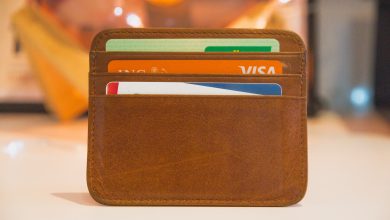How Does an Eviction Affect My Credit?

If you have been late on your rent lately, you might be worried about getting evicted. Evictions happen when tenants do not pay the rent. They can also happen when you consistently pay late. But before you are evicted, your landlord will likely reach out to you and let you know what needs to change before you are kicked out of your home. If you have been evicted in the past or are worried about getting evicted in the future, you might be wondering, “How does an eviction affect my credit?” Below we will explain exactly how an eviction affects your credit and what you can do if you receive an eviction notice.
What to Do If You Receive an Eviction Notice
Eviction notices come in two forms: curable and incurable. A curable notice is sent from your landlord detailing why they believe you have broken the lease agreement and what you can do to fix it. If you work to clear the issue with the landlord, the eviction process will end. An incurable notice details no fixes and requires that you leave the rental property by a certain date.
Whether or not your notice is curable or incurable, if you do not respond to it, your landlord will have no choice but to obtain a court-ordered judgment against you. If your eviction comes to that, you will have an opportunity to speak in court about why you were withholding rent.
If the landlord is responsible for fixing something as part of your lease and that fix has not taken place, that could be a viable argument for why you haven’t paid on time. If that is the case, a judge may rule in your favor and order that the landlord fixes the issue before receiving your payment.
But if you know that you are at fault, your best course of action is to respond to your landlord as soon as possible to halt the eviction. If you have received an incurable notice, you will only harm yourself by ignoring it.

Avoid Court and Avoid a Judgement
On its own, an eviction will not affect your credit because it is not part of your credit score – as long as you vacate the property upon receiving notice from the landlord. By doing so, you will avoid the court date that will subsequently be set up if you do not vacate. An eviction is a legal procedure, and your landlord can ultimately obtain a judgment to be placed against you by the court. If a judgment is placed against you, that is when your ability to obtain credit will suffer.
How an Eviction Affects Your Credit
Evictions themselves do not appear on your credit report, but a judgment will. Tax liens, bankruptcy, and judgments can all appear on your credit report. The judgment will show up on your credit score in the section marked “public records.” A judgment can both knock your score down and will leave a black mark on your credit report.
While not all judgments appear on every credit report, they are still simple for any future landlord or creditor to find. Any company that sees the judgment and will reasonably assume that you were evicted. So while you can work to improve your score, the judgment will stay on your record for up to seven years.
An eviction can also affect your credit if you took out a personal loan to help catch up on late payments. If you failed to pay back the loan, any debts or collection accounts that resulted will appear on your credit score and bring it down further.
Factors of Your Credit Score
The main factors of your credit score are the following five categories:
- Payment history
- Credit utilization ratio (amount of debt)
- Combined age of credit accounts (credit history)
- Assortment of credit accounts
- Hard inquiries (credit checks)

Payment History
Your payment history is the most significant factor that affects your credit. The easiest way to take advantage of this factor is to put your credit card accounts on autopay for the minimum amount owed without taking a penalty. One or two late payments will not affect your score, but several missed payments will. Payment history accounts for around 35% of your total credit score.
Credit Utilization Ratio
Your credit utilization ratio is calculated by taking how much you owe on credit and dividing it by the total combined spending limits of your accounts. For example, if you have a credit card with a $3,000 credit limit and you have a balance of $300, your credit utilization ratio is 10%. It is suggested that you keep this number under 30%, and this factor accounts for around 30% of your credit score.
Credit History
The total combined age of your credit accounts for 15% of your credit score. There are two numbers that make up your credit history. The first is how old your longest-running account is. The second is the average age of all of your accounts combined. The longer your credit history, the better it impacts your score.
Mix of Credit Accounts
The mix of your credit accounts factors into 10% of your score. This area looks at the types of accounts you have, mainly revolving debt like credit cards and installment debt, such as a loan for a car or a mortgage for a house. Having a mix of both is preferred.
Hard Inquiries
Only hard inquiries, as opposed to soft inquiries, will show up on your credit report. An example of a hard inquiry is when you apply for a new credit card. When this happens, the credit card company will make a hard inquiry into your report to see how much credit they are willing to offer you. A soft inquiry is when you check your own credit, or one of your current creditors checks your credit. This factor accounts for around 10% of your score.
Other Factors
The other factors that go into your score include reporting errors and any bills that have gone unpaid and have been sent to collections. For example, your payment history on utility bills does not show up on your credit report. But if you left a utility bill unpaid for long enough that the debt is sent to collections, that will show up on your score and affect it negatively.



